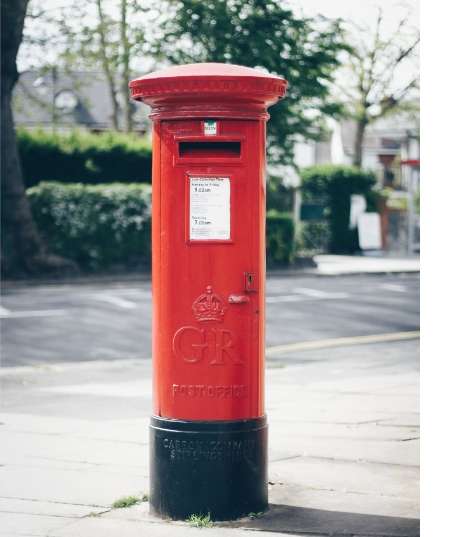Barbados Building Identifier System Ensures Formal Addressing for Residents.
The Caribbean archipelago, renowned for its idyllic beauty and vibrant culture, has long grappled with a logistical challenge impacting various facets of daily life: the absence of standardized addressing systems. Across many islands, homes and businesses lack formal addresses, a situation rooted in inconsistent street naming conventions and the absence of numbered properties. This has resulted in a reliance on descriptive directions, often referencing landmarks or relative locations, like “the green house on the corner behind the third pink house up the hill.” While seemingly quaint, this informal system presents significant obstacles to efficient mail delivery, emergency response times, utility services, and even basic navigation. Furthermore, it creates hurdles for businesses and individuals requiring proof of address for various transactions. The lack of standardized addresses has hampered economic development and contributed to inefficiencies across numerous sectors, highlighting the crucial need for modern, reliable addressing solutions.
Barbados, recognizing the limitations of its traditional addressing system, has emerged as a regional leader in tackling this challenge. The Barbados Building Identifier (BBID) project, a collaborative effort spearheaded by the Ministry of Industry, Innovation, Science and Technology, in conjunction with the Lands and Surveys Department, the Barbados Postal Service, and the Electoral and Boundaries Commission, represents a groundbreaking initiative to revolutionize the island’s addressing landscape. The BBID system assigns a unique six-character alphanumeric code to every building on the island, thereby enabling precise location identification using contemporary mapping technologies. This innovation not only streamlines navigation and delivery services but also simplifies the process of providing proof of address, a requirement often essential for business transactions, financial services, and government interactions. The BBID’s impact has already garnered international recognition, earning the prestigious 2023 Special Achievement in GIS (SAG) Award and the 2024 Public Service Excellence Award, underscoring the initiative’s significance and effectiveness.
The implementation of the BBID system carries far-reaching benefits for various sectors in Barbados. Emergency services, including ambulances, fire departments, and police, can now respond to calls with greater speed and accuracy, potentially saving lives and minimizing property damage. Businesses reliant on efficient delivery networks, such as e-commerce platforms and logistics companies, also experience enhanced operational efficiency. Moreover, the BBID simplifies administrative processes for individuals, eliminating the need to produce multiple documents for address verification. Once an individual’s address is confirmed and linked to their national identification card, equipped with a secure chip and PIN, providing proof of address becomes seamless and secure. This integration with national identification further strengthens the system’s reliability and safeguards against potential fraud. The anticipated introduction of mobile ID technology promises even more advanced and secure proof-of-address capabilities in the future, positioning Barbados as a leader in digital identity solutions.
The BBID project extends beyond simply assigning unique identifiers to buildings; it also entails a comprehensive overhaul of the national postal code system. The updated postal codes now adhere to international standards, replacing vague descriptors like “corner of” and lot numbers with precise and unique codes. The new format combines a parish identifier with the BBID, creating a distinct code for every address on the island. This standardization enhances the accuracy and efficiency of mail delivery and facilitates seamless integration with global postal networks. For example, a postal code in the updated format might appear as BB23020-24OK5, clearly identifying both the geographic area and the specific building. This comprehensive approach to addressing reform demonstrates a commitment to long-term sustainability and compatibility with international best practices.
Key stakeholders have lauded the BBID project as a transformative initiative for Barbados. Minister Marsha Caddle, of the Ministry of Industry, Innovation, Science and Technology, praised the inter-agency collaboration that enabled the project’s success, emphasizing the positive impact on the lives of Barbadians. By removing unnecessary bureaucratic hurdles, the BBID empowers citizens to be more productive and engage more effectively in economic activities. Paul Collymore, Manager of Information Systems at the Lands and Surveys Department, highlighted the simplicity and accuracy of the BBID system compared to commercially available mapping services, noting the reduction in location errors common in other systems. Postmaster General Joann Busby welcomed the enhanced precision afforded by the new postal codes, ensuring that each address has its own unique identifier, improving mail delivery efficiency. Chief Electoral Officer Sherland Turton underscored the importance of accurate address verification for maintaining a reliable electoral process, further highlighting the BBID’s contribution to good governance.
The rollout of the BBID system involves a coordinated effort between postal workers and Electoral Department staff who visit residents to verify their addresses and provide them with their unique BBID and updated postal code. This proactive approach ensures comprehensive coverage and facilitates widespread adoption of the new system. Barbados’ success with the BBID initiative serves as an inspiring example for other Caribbean islands grappling with similar addressing challenges. Several islands and island groups have recognized the need for modernized addressing systems and are implementing various solutions. Sint Maarten, for instance, has adopted the what3words system, assigning unique three-word addresses to every 3×3 meter square on the island, dramatically improving location accuracy. The British Virgin Islands (BVI) is actively developing a National Addressing System to assign formal addresses to properties, while the U.S. Virgin Islands (USVI) is implementing a Street Addressing Initiative, with St. John slated to become the first Caribbean island with a fully functioning street address system by January 2025. These collective efforts demonstrate a growing regional commitment to addressing a critical infrastructural gap, paving the way for enhanced efficiency, improved services, and greater economic opportunities across the Caribbean.
Share this content:












Post Comment